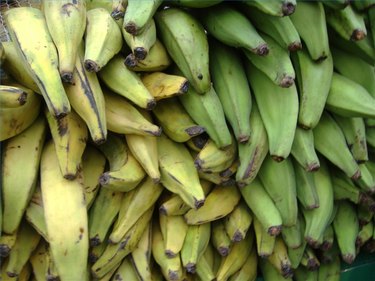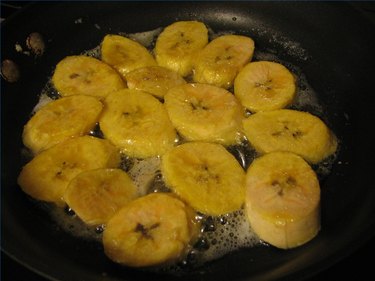
In the supermarket, you might have seen what you thought to be large firm bananas. They are, in fact, plantains. While they share the same genetic family as bananas, there are some striking differences.
Types
Video of the Day
There are two primary groups of plantains, French and Horn. There are subgroups of each depending on the particular variety that is mostly dependent on size or growing style.
Video of the Day
Description
Plantains, like banana, grow in bunches called "hands". The trees can vary in size from 12 feet to 25 feet tall with huge broad leaves as wide as two feet across.
Geography
Plantains need tropical weather for successful fruit production. They are native to Africa and used as a starch, not unlike the potato. When explorers came to the Caribbean Islands and South America, they found the climate to be perfect for plantains where they are still thriving today.
Use

Plantains, unlike the common sweet banana, are usually cooked or processed in some way and not eaten raw. A popular method of fixing plantains is to fry them. Peeled plantains cut into thick slices can be fried, then smashed lightly and re-fried again. Seasoning can be sweet, like butter and sugar, or savory, like garlic butter.
Nutrition
Plantains are a good source of vitamins C, B6 and A. Low in fat; they are a good way to add fiber and carbohydrates to your diet. Like common bananas, plantains are also an excellent source of potassium.